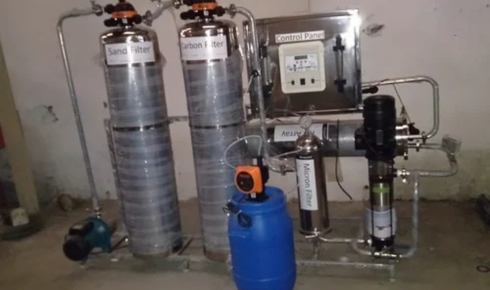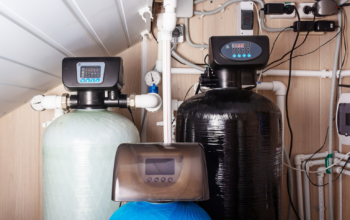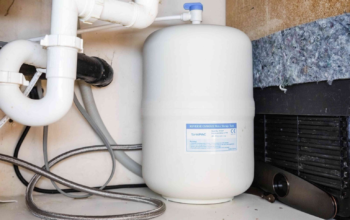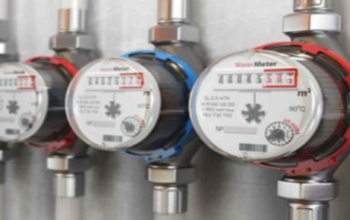Let’s be honest—clean water used to be something we all just assumed. You turn on the tap, water comes out. That’s it, right? But in commercial spaces—hotels, restaurants, manufacturing plants, schools, hospitals—it’s a different game. There’s more at stake, and the old “out of sight, out of mind” thinking doesn’t cut it anymore.
Clean water isn’t just about staying hydrated—it’s about safety, equipment longevity, public health, even your reputation. And if you’re running or managing a commercial operation, you probably already know: filtration isn’t a luxury. It’s the baseline.
Let’s dig into why commercial water filtration has become such a critical piece of the puzzle, and why now might be the time to take a closer look at what your water’s really doing behind the scenes.
When “Good Enough” Isn’t Good Enough
Think about it. A restaurant serving hundreds of meals a day. A hotel turning over rooms with multiple guests. A gym, a spa, a school. These places rely on water not just for drinking—but for cleaning, cooking, cooling systems, laundry, ice machines, showers, and more.
When the water isn’t right—too hard, too chlorinated, too full of sediment—it starts to show up everywhere. You’ll see it in stained linens. Guests might complain of dry skin or smelly water. Machines break down sooner than they should. Food tastes off. Cleaning becomes less effective.
And the kicker? Often, it all traces back to what’s in the pipes.
The Real Benefits of Filtering at Scale
Commercial filtration isn’t just about making water look clean. It’s about removing the stuff you don’t see: heavy metals, sediments, bacteria, pesticides, chlorine, and more. These can vary depending on where you’re located—urban vs. rural, municipal vs. well water—but the result is the same: poor-quality water can cause expensive problems.
Proper filtration:
- Prolongs the life of dishwashers, boilers, HVACs, ice machines, and steamers
- Improves taste and odor (key for hospitality and foodservice)
- Reduces energy costs by preventing scale buildup
- Increases guest and staff satisfaction
- Helps you comply with local water standards and avoid fines or shutdowns
Basically, it protects both your investment and your reputation.
Beyond the Faucet: Whole-Building Thinking
One of the biggest misconceptions in commercial settings is that filtration belongs at the point-of-use: maybe under a sink, attached to an ice machine, or fitted to a shower. That’s a start—but it’s not enough.
A single filter can’t fix systemic water issues that flow throughout an entire facility. That’s where large-scale water systems come into play. These are designed to handle the volume and complexity of commercial operations—filtering all incoming water before it ever reaches taps, appliances, or guests.
It’s like switching from using umbrellas to building a roof. You’re not just patching leaks. You’re keeping the whole structure dry.
Choosing the Right Tools for the Job
When it comes to filtration, there’s no one-size-fits-all answer. The “right” system depends on what’s in your water and how you use it.
Some common options include:
- Sediment filters (for sand, rust, dirt)
- Carbon filters (great for chlorine and VOCs)
- Water softeners (for calcium and magnesium that cause hard water)
- UV purifiers (for bacteria and viruses)
- And the powerhouse of them all: reverse osmosis
Reverse osmosis is like the VIP lounge of water treatment. It pushes water through a semi-permeable membrane that filters out nearly everything—salts, lead, nitrates, PFAS, you name it. It’s especially useful in commercial kitchens, beverage production, and healthcare environments where ultra-pure water is a must.
RO systems do waste a bit of water in the process, but for many businesses, the payoff is more than worth it—longer equipment life, fewer contaminants, better taste, and safer outcomes.
What Happens If You Don’t?
Let’s get real—ignoring your water quality can get expensive. Mineral-heavy water (aka “hard” water) causes scale buildup in pipes and machinery. Over time, this means clogged lines, corroded parts, energy inefficiencies, and early replacements. All of that adds up.
There’s also the customer experience to consider. Imagine your guest runs a bath and it smells faintly like a public pool. Or your coffee shop brews with water that leaves a weird aftertaste. That’s the kind of thing people remember—and not in a good way.
Then there are legal and health implications. If your water fails a health inspection or becomes the source of a contamination scare, the fallout can be devastating. Lawsuits. Shutdowns. Headlines. It’s a risk no smart business should take lightly.
Don’t Just Set It and Forget It
One thing to remember: filtration systems need maintenance. Filters get clogged, membranes wear out, and water quality can shift with seasons, storms, or infrastructure changes in your city.
That’s why it’s smart to:
- Set up a maintenance schedule
- Use automatic monitoring systems where possible
- Test your water regularly (quarterly at least)
- Train staff to recognize water-related issues (strange odors, spots, stains)
A system is only as good as its upkeep. But with the right partner and plan, it’s relatively easy to stay ahead of problems before they snowball.
Future-Proofing with Smarter Solutions
The good news? Technology in water treatment is moving fast. Today’s systems can self-monitor, alert you to issues, adjust pressure, and even clean themselves. That’s a game-changer for busy commercial settings.
Whether you manage a five-star hotel or a small-town school, smart filtration gives you more control, fewer headaches, and better results.
More importantly, it positions your business as thoughtful and forward-thinking—something today’s eco-conscious customers are increasingly looking for.
Final Thoughts: It’s Time to Take the Tap Seriously
You wouldn’t serve subpar food, offer dirty linens, or skip basic hygiene. So why risk your entire operation with questionable water?
Clean water is foundational—it’s tied to every touchpoint of a guest experience, every moving part of a facility, every cup of coffee, every laundered sheet.
Investing in commercial water filtration isn’t just smart. It’s essential. And the longer you wait, the more risk you take on.




